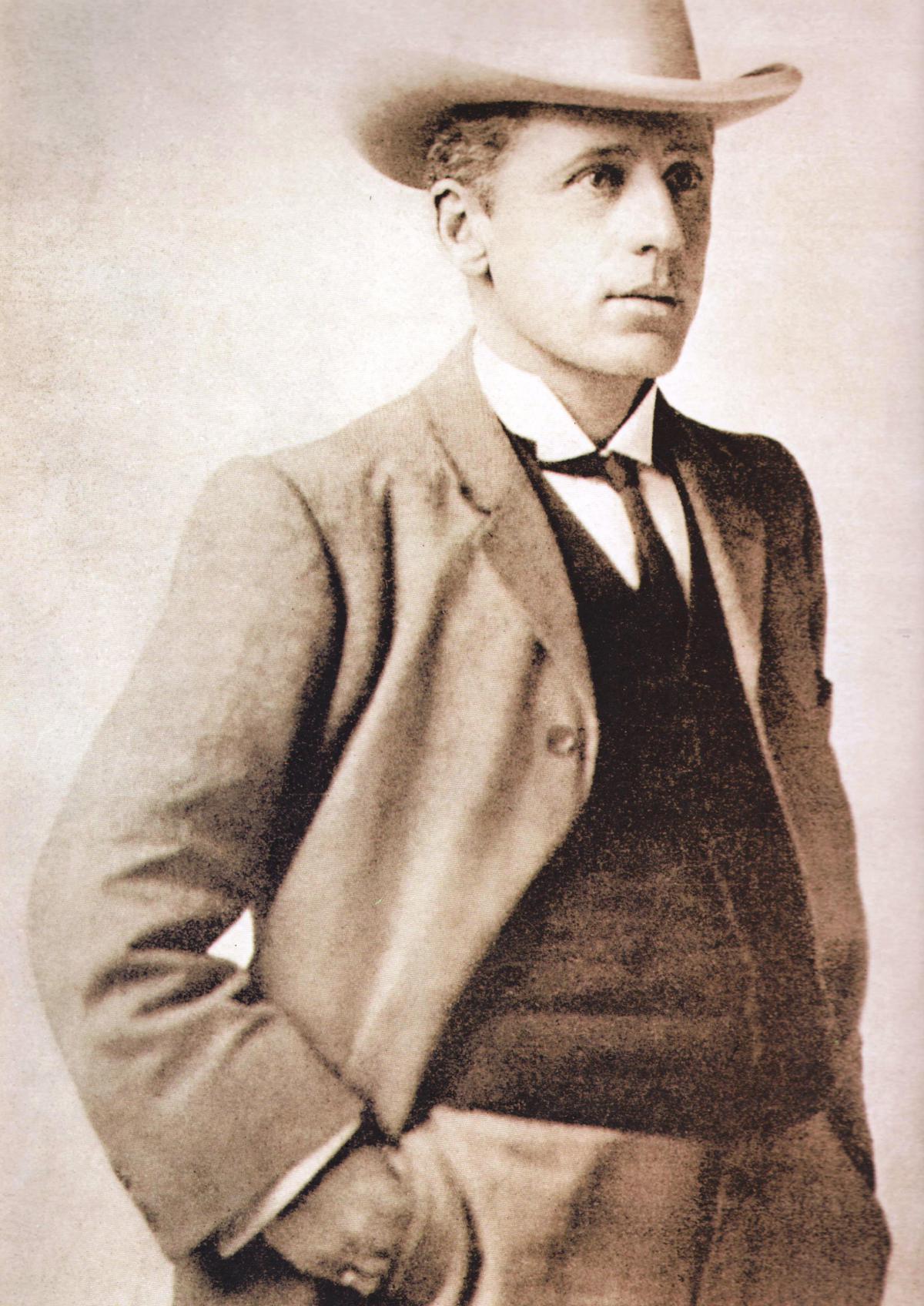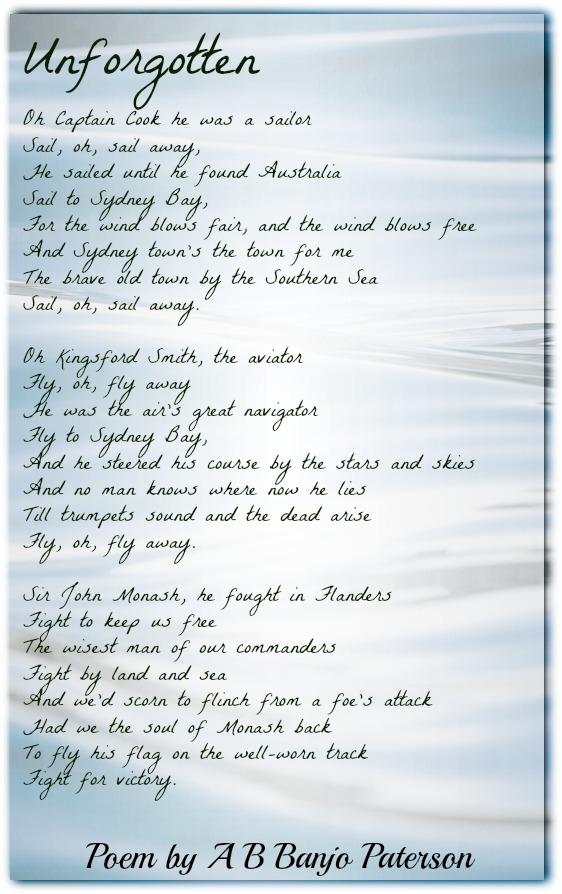
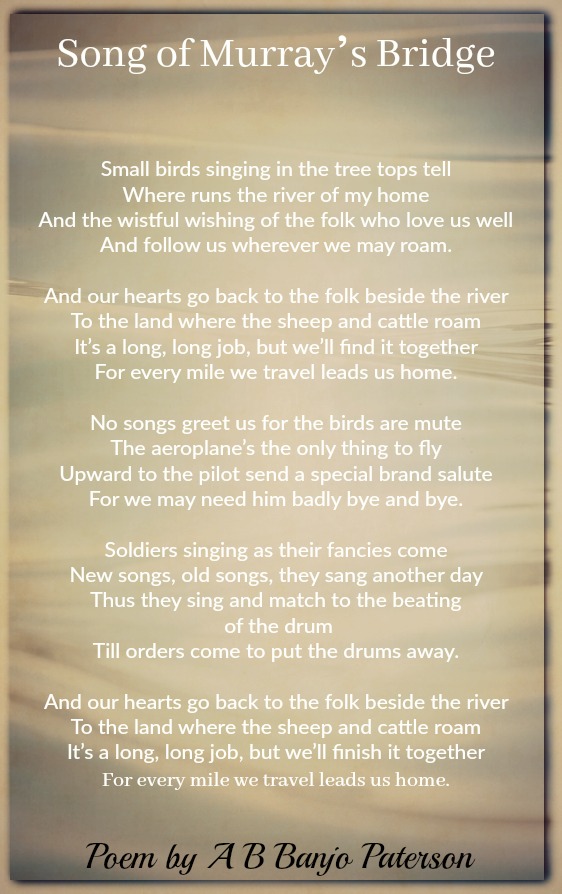
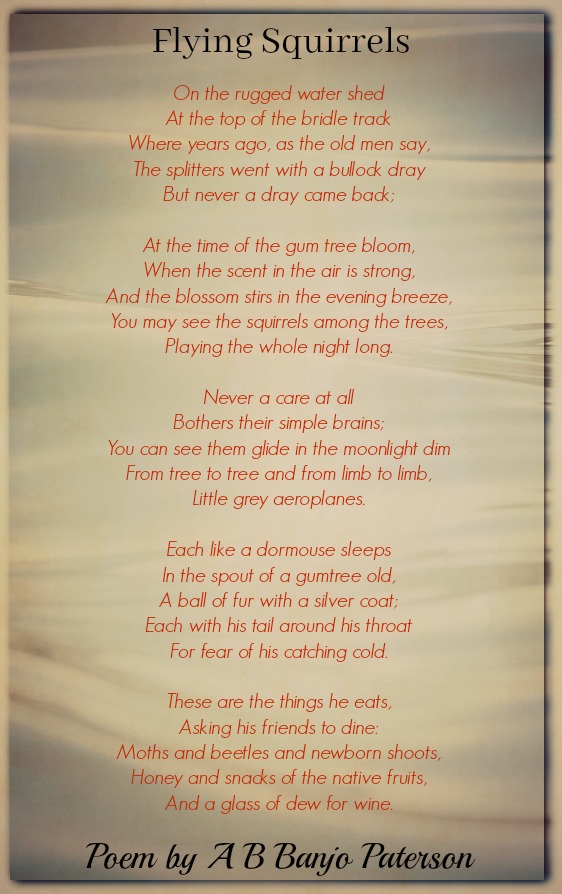
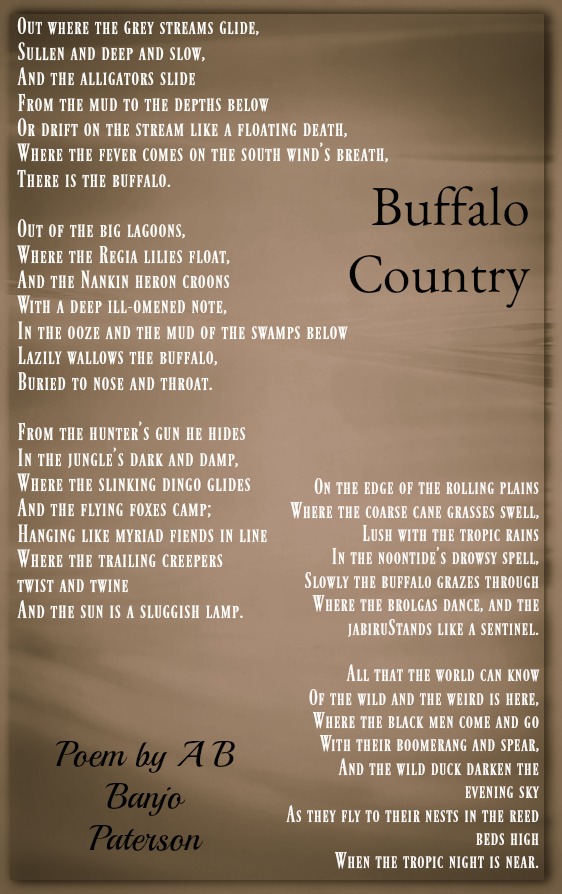
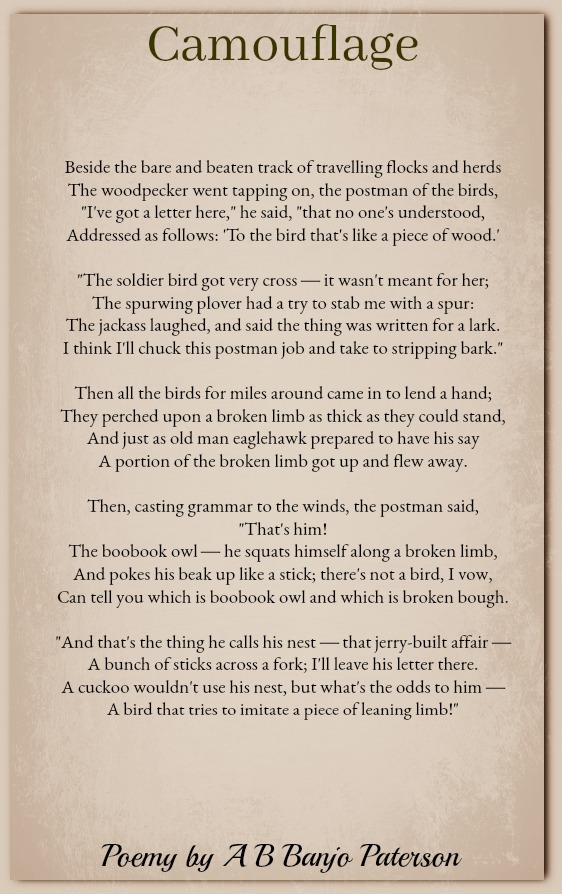
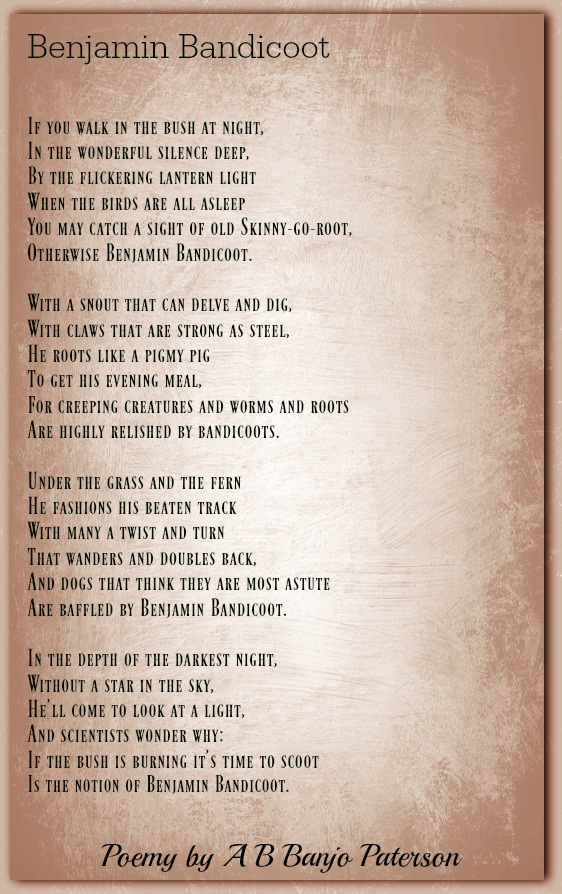
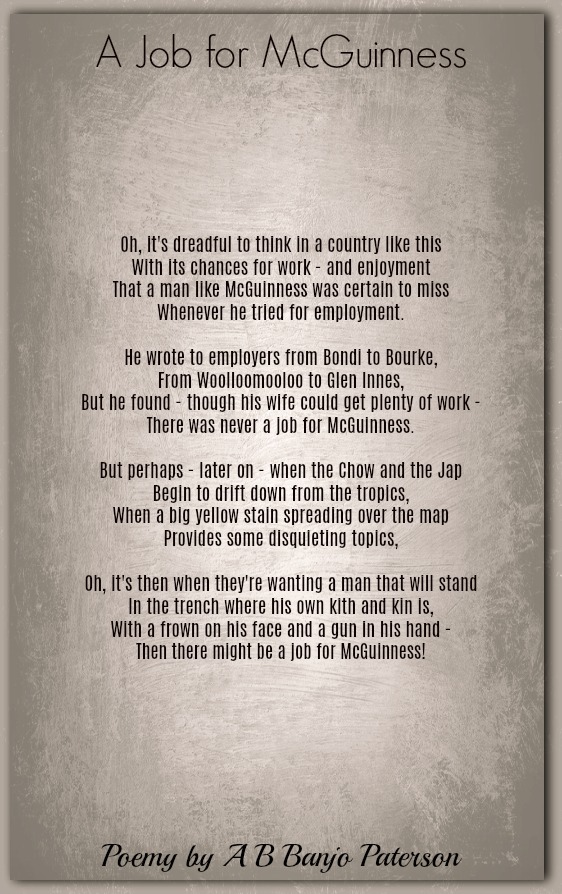
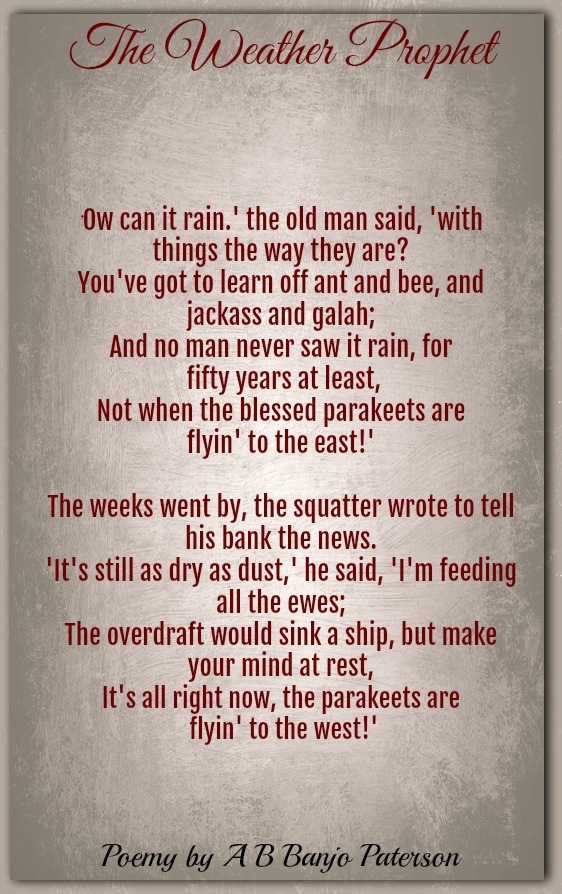
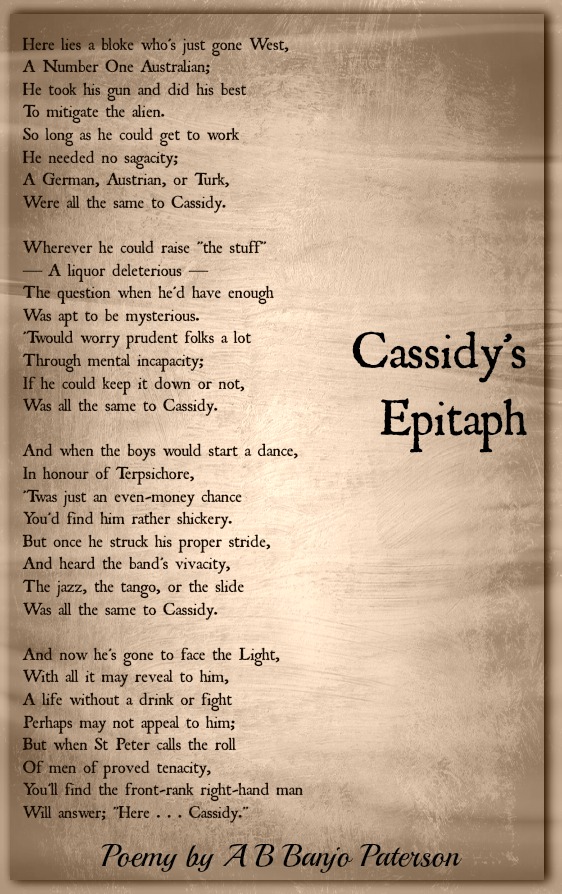
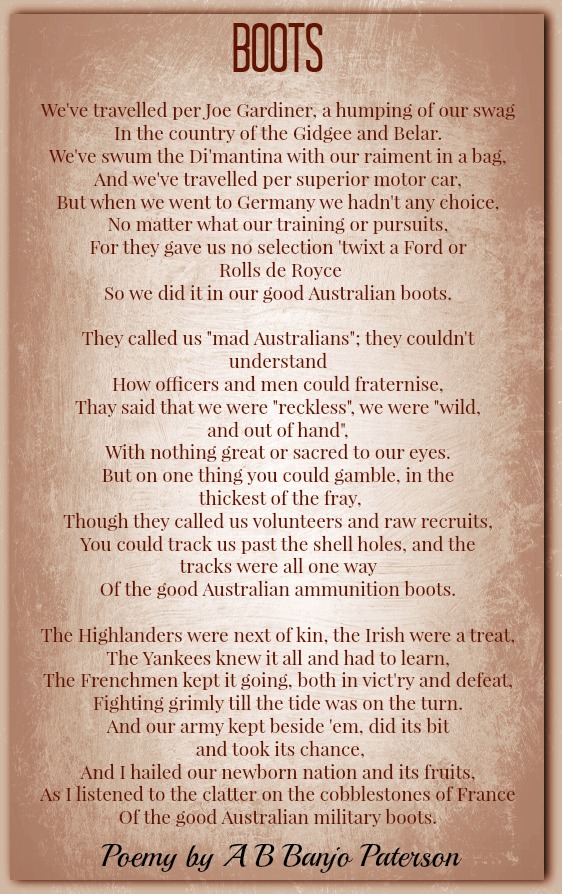
A Grain of Desert Sand
Beneath the blue Egyptian skies,
With ramp and roller, guide and stay,
I saw the Pyramids arise
And I shall see them pass away.
I watched when Alexander passed;
I saw Napoleon’s flag unfurled –
The greatest and perhaps the last
Of men whose footsteps shook the world.
To each his hour of pride and place,
Arab and Persian, Greek and Jew;
Mahomet trod upon my face,
Darius spurned me with his shoe.
And yet I am not Priest or Kin,
Sultan or chief in high command.
I am that one unchanging thing,
A grain of desert sand.
Hawker, the Standard Bearer
The grey gull sat on a floating whale,
On a floating whale sat he,
And he told his tale of the storm and the gale,
And the ships that he saw with steam and sail,
As he flew by the Northern Sea.
"I have seen a sign that is strange and new,
That I never before did see:
A flying ship that roared as it flew,
The storm and the tempest driving through,
It carried a flag and it carried a crew,
Now what would that be?" said he.
"And the flag was a Jack with stars displayed,
A flag that is new to me;
For it does not ply in the Northern trade,
But it drove through the storm-wrack unafraid,
Now, what is that flag?" said he.
"I have seen that flag that is starred with white,"
Said a southern gull, said he,
"And saw it fly in a bloody fight,
When the raider Emden turned in flight,
And crashed on the Cocos lee."
"And who are these folk whose flag is first
Of all the flags that fly
To dare the storm and the fog accurst,
Of the great North Sea where the bergs are nursed,
And the Northern Lights ride high?"
"The Australian folk," said a lone sea-mew,
"The Australian flag," said he.
"It is strange that a folk that is far and few
Should fly their flag where there never flew
Another flag!" said he.
"I have followed their flag in the fields of France,
With its white stars flying free,
And no misfortune and no mischance
Could turn them back from their line of advance,
Or the line that they held," said he.
"Whenever there's ever rule to break,
Wherever they oughtn't to be,
With a death to dare and a risk to take,
A track to find or a way to make,
You will find them there," said he.
"They come from a land that is parched with thirst,
An inland land," said he,
"On risk and danger their breed is nursed,
And thus it happens their flag is first
To fly in the Northern Sea."
"Though Hawker perished, he overcame
The risks of the storm and the sea,
And his name shall be written in stars of flame,
On the topmost walls of the Temple of Fame,
For the rest of the world to see."
The Gundaroo Bullock
Oh, there's some that breeds the Devon that's as solid as a stone,
And there's some that breeds the brindle which they call the "Goulburn Roan";
But amongst the breeds of cattle there are very, very few
Like the hairy-whiskered bullock that they breed at Gundaroo.
Far away by Grabben Gullen, where the Murrumbidgee flows,
There's a block of broken country-side where no one ever goes;
For the banks have gripped the squatters, and the free selectors too,
And their stock are always stolen by the men of Gundaroo.
There came a low informer to the Grabben Gullen side,
And he said to Smith the squatter, "You must saddle up and ride,
For your bullock's in the harness-cask of Morgan Donahoo —
He's the greatest cattle-stealer in the whole of Gundaroo."
"Oh, ho!" said Smith, the owner of the Grabben Gullen run,
"I'll go and get the troopers by the sinking of the sun,
And down into his homestead tonight we'll take a ride,
With warrants to identify the carcass and the hide."
That night rode down the troopers, the squatter at their head,
They rode into the homestead, and pulled Morgan out of bed.
"Now, show to us the carcass of the bullock that you slew —
The hairy-whiskered bullock that you killed in Gundaroo."
They peered into the harness-cask, and found it wasn't full,
But down among the brine they saw some flesh and bits of wool.
"What's this?" exclaimed the trooper; "an infant, I declare;"
Said Morgan, "'Tis the carcass of an old man native bear.
I heard that ye were coming, so an old man bear I slew,
Just to give you kindly welcome to my home in Gundaroo.
"The times are something awful, as you can plainly see,
The banks have broke the squatters, and they've broke the likes of me;
We can't afford a bullock — such expense would never do —
So an old man bear for breakfast is a treat in Gundaroo."
And along by Grabben Gullen, where the rushing river flows,
In the block of broken country where there's no one ever goes,
On the Upper Murrumbidgee, they're a hospitable crew —
But you mustn't ask for "bullock" when you go to Gundaroo.
A Singer of the Bush
There is a waving of grass in the breeze
And a song in the air,
And a murmur of myriad bees
That toil everywhere.
There is scent in the blossom and bough,
And the breath of the Spring
Is as soft as a kiss on a brow —
And Springtime I sing.
There is drought on the land, and the stock
Tumble down in their tracks
Or follow — a tottering flock —
The scrub-cutter's axe.
While ever a creature survives
The axes shall swing;
We are fighting with fate for their lives —
And the combat I sing.
Swingin' the Lead
Said the soldier to the Surgeon, "I've got noises in me head
And a kind o' filled up feeling after every time I'm fed;
I can sleep all night on picket, but I can't sleep in my bed".
And the Surgeon said,
"That's Lead!"
Said the soldier to the Surgeon, "Do you think they'll send me back?
For I really ain't adapted to be carrying a pack
Though I've humped a case of whisky half a mile upon my back".
And the Surgeon said,
"That's Lead!"
"And my legs have swelled up cruel, I can hardly walk at all,
Bur when the Taubes come over you should see me start to crawl;
When we're sprinting for the dugout, I can easy beat 'em all".
And the Surgeon said,
"That's Lead!"
So they sent him to the trenches where he landed safe and sound,
And he drew his ammunition, just about two fifty round:
"Oh Sergeant, what's this heavy stuff I've got to hump around?"
And the Sergeant said,
"That's Lead!"
Australia Today 1916
They came from the lower levels
Deep down in the Brilliant mine;
From the wastes where the whirlwind revels,
Whirling the leaves of pine.
On the western plains, where the Darling flows,
And the dust storms wheel and shift,
The teamster loosened his yokes and bows,
And turned his team adrift.
On the western stations, far and wide,
There's many an empty pen,
For the "ringers" have cast the machines aside
And answered the call for men.
On the lucerne flats where the stream runs slow,
And the Hunter finds the sea,
The women are driving the mowers now,
With the children at their knee.
For the men have gone, as a man must go,
At the call of the rolling drums;
For the men have sworn that the Turks shall know
When the old battalion comes.
Column of companies by the right,
Steady in strong array,
With the sun on the bayonets gleaming bright,
The battalion marched away.
They battled, the old battalion,
Through the toil of the training camps,
Sweated and strove at lectures,
By the light of the stinking lamps.
Marching, shooting, and drilling;
Steady and slow and stern;
Awkward and strange, but willing
All of their job to learn.
Learning to use the rifle;
Learning to use the spade;
Deeming fatigue a trifle
During each long parade.
Till at last they welded
Into a concrete whole,
And there grew in the old battalion
A kind of battalion's soul.
Brotherhood never was like it;
Friendship is not the word;
But deep in that body of marching men
The soul of a nation stirred.
And like one man with a single thought
Cheery and confident;
Ready for all that the future brought,
The old battalion went.
Column of companies by the right,
Steady in strong array,
With the sun on the bayonets gleaming bright,
The battalion marched away.
How shall we tell of the landing
By the hills where the foe were spread,
And the track of the old battalion
Was marked by the Turkish dead?
With the dash that discipline teaches,
Though the hail of the shrapnel flew,
And the forts were raking the beaches,
And the toll of the dead men grew.
They fixed their grip on the gaunt hillside
With a pluck that has won them fame;
And the home-folks know that the dead men died
For the pride of Australia's name.
The Mountain Squatter
Here in my mountain home,
On rugged hills and steep,
I sit and watch you come,
O Riverinia Sheep!
You come from the fertile plains
Where saltbush (sometimes) grows,
And flats that (when it rains)
Will blossom like the rose.
But when the summer sun
Gleams down like burnished brass,
You have to leave your run
And hustle off for grass.
'Tis then that — forced to roam —
You come to where I keep,
Here in my mountain home,
A boarding-house for sheep.
Around me where I sit
The wary wombat goes —
A beast of little wit,
But what he knows, he knows.
The very same remark
Applies to me also;
I don't give out a spark,
But what I know, I know.
My brain perhaps would show
No convolutions deep,
But anyhow I know
The way to handle sheep.
These Riverina cracks,
They do not care to ride
The half-inch hanging tracks
Along the mountain side.
Their horses shake with fear
When loosened boulders go
With leaps, like startled deer,
Down to the gulfs below.
Their very dogs will shirk,
And drop their tails in fright
When asked to go and work
A mob that's out of sight.
My little collie pup
Works silently and wide;
You'll see her climbing up
Along the mountain side.
As silent as a fox
You'll see her come and go,
A shadow through the rocks
Where ash and messmate grow.
Then, lost to sight and sound
Behind some rugged steep,
She works her way around
And gathers up the sheep;
And, working wide and shy,
She holds them rounded up.
The cash ain't coined to buy
That little collie pup.
And so I draw a screw
For self and dog and keep
To boundary-ride for you,
O Riverina Sheep!
And, when the autumn rain
Has made the herbage grow,
You travel off again,
And glad — no doubt — to go.
But some are left behind
Around the mountain's spread,
For those we cannot find
We put them down as dead.
So, when we say adieu
And close the boarding job,
I always find a few
Fresh ear-marks in my mob.
And, what with those I sell,
And what with those I keep,
You pay me pretty well,
O Riverina Sheep!
It's up to me to shout
Before we say good-bye —
"Here's to a howlin' drought
All west of Gundagai!"
Song of the Wheat
We have sung the song of the droving days,
Of the march of the travelling sheep;
By silent stages and lonely ways
Thin, white battalions creep.
But the man who now by the land would thrive
Must his spurs to a plough-share beat.
Is there ever a man in the world alive
To sing the song of the Wheat!
It's west by south of the Great Divide
The grim grey plains run out,
Where the old flock-masters lived and died
In a ceaseless fight with drought.
Weary with waiting and hope deferred
They were ready to own defeat,
Till at last they heard the master-word—
And the master-word was Wheat.
Yarran and Myall and Box and Pine—
’Twas axe and fire for all;
They scarce could tarry to blaze the line
Or wait for the trees to fall,
Ere the team was yoked, and the gates flung wide,
And the dust of the horses’ feet
Rose up like a pillar of smoke to guide
The wonderful march of Wheat.
Furrow by furrow, and fold by fold,
The soil is turned on the plain;
Better than silver and better than gold
Is the surface-mine of the grain;
Better than cattle and better than sheep
In the fight with drought and heat;
For a streak of stubbornness, wide and deep,
Lies hid in a grain of Wheat.
When the stock is swept by the hand of fate,
Deep down in his bed of clay
The brave brown Wheat will lie and wait
For the resurrection day:
Lie hid while the whole world thinks him dead;
But the Spring-rain, soft and sweet,
Will over the steaming paddocks spread
The first green flush of the Wheat.
Green and amber and gold it grows
When the sun sinks late in the West;
And the breeze sweeps over the rippling rows
Where the quail and the skylark nest.
Mountain or river or shining star,
There’s never a sight can beat—
Away to the sky-line stretching far—
A sea of the ripening Wheat.
When the burning harvest sun sinks low,
And the shadows stretch on the plain,
The roaring strippers come and go
Like ships on a sea of grain;
Till the lurching, groaning waggons bear
Their tale of the load complete.
Of the world’s great work he has done his share
Who has gathered a crop of wheat.
Princes and Potentates and Czars,
They travel in regal state,
But old King Wheat has a thousand cars
For his trip to the water-gate;
And his thousand steamships breast the tide
And plough thro’ the wind and sleet
To the lands where the teeming millions bide
That say: “Thank God for Wheat!”
Sunrise on the Coast
Grey dawn on the sand-hills — the night wind has drifted
All night from the rollers a scent of the sea;
With the dawn the grey fog his battalions has lifted,
At the call of the morning they scatter and flee.
Like mariners calling the roll of their number
The sea-fowl put out to the infinite deep.
And far overhead — sinking softly to slumber —
Worn out by their watching the stars fall asleep.
To eastward, where rests the broad dome of the skies on
The sea-line, stirs softly the curtain of night;
And far from behind the enshrouded horizon
Comes the voice of a God saying "Let there be light."
And lo, there is light! Evanescent and tender,
It glows ruby-red where 'twas now ashen-grey;
And purple and scarlet and gold in its splendour —
Behold, 'tis that marvel, the birth of a day!
Old Schooldays
Awake, of Muse, the echoes of a day
Long past, the ghosts of mem'ries manifold —
Youth's memories that once were green and gold
But now, alas, are grim and ashen grey.
The drowsy schoolboy wakened up from sleep,
First stays his system with substantial food,
Then off for school with tasks half understood,
Alas, alas, that cribs should be so cheap!
The journey down to town — 'twere long to tell
The storm and riot of the rabble rout;
The wild Walpurgis revel in and out
That made the ferry boat a floating hell.
What time the captive locusts fairly roared:
And bulldog ants, made stingless with a knife,
Climbed up the seats and scared the very life
From timid folk, who near jumped overboard.
The hours of lessons — hours with feet of clay
Each hour a day, each day more like a week:
While hapless urchins heard with blanched cheek
The words of doom "Come in on Saturday".
The master gowned and spectacled, precise,
Trying to rule by methods firm and kind
But always just a little bit behind
The latest villainy, the last device,
Born of some smoothfaced urchin's fertile brain
To irritate the hapless pedagogue,
And first involve him in a mental fog
Then "have" him with the same old tale again.
The "bogus" fight that brought the sergeant down
To that dark corner by the old brick wall,
Where mimic combat and theatric brawl
Made noise enough to terrify the town.
But on wet days the fray was genuine,
When small boys pushed each other in the mud
And fought in silence till thin streams of blood
Their dirty faces would incarnadine.
The football match or practice in the park
With rampant hoodlums joining in the game
Till on one famous holiday there came
A gang that seized the football for a lark.
Then raged the combat without rest or pause,
Till one, a hero, Hawkins unafraid
Regained the ball, and later on displayed
His nose knocked sideways in his country's cause.
Before the mind quaint visions rise and fall,
Old jokes, old students dead and gone:
And some that lead us still, while some toil on
As rank and file, but "Grammar" children all.
And he, the pilot, who has laid the course
For all to steer by, honest, unafraid —
Truth is his beacon light, so he has made
The name of the old School a living force.
A Motor Courtship
Into her presence he gaily pranced,
A very fat spark, and a bit advanced.
With a Samson tread on the earth he trod,
He was stayed and gaitered, and fifty odd.
And she was a tulip just unfurled,
The sweetest thing in the motor world.
Her body was one of which poets dreamed;
Eighteen — twenty, or so she seemed.
Her air was haughty, her spirit proud,
But properly governed, as all allowed.
"Pity," he said, "my sad condition;
My heart's in a state of advanced ignition.
"Ask me to do some desperate deed,
And I'll do it at once at my topmost speed."
"Sir," said the maiden, "pray be seated;
I fear from your bearing you're somewhat heated.
"And I trust that a timely lubrication
Of throttle will cool your circulation."
As a well-made mixture she indicated,
With joy and gladness he radiated.
"Oh, come," said he, "in this soft spring weather,
Let us run over the world together!"
But she slipped his clutch with a gesture mocking,
"Your heart," she said; "I can hear it knocking.
"You haven't the gear at my pace to last;
Both men and motors — I like them fast.
"And I think that in me you have missed your mission;
You are only an old-style tube-ignition!"
With a sidelong motion he left the place;
For weal or woe he was off his base.
He drove his car to the cliffs of Dover,
Made one short circuit and ran her over.
And the stormy Petrol her rest is taking,
Where only the wild waves do the "brakeing"
The Dam that Keele Built
This is the dam that Keele built.
This is the stream that brought the water to fill the dam that Keele built;
This is the Water and Sewer Brigade,
That measured the stream that brought the water to fill the dam that Keele built;
This is the Engineer by Trade —
Head of the Water and Sewer Brigade,
Who measured the stream that brought the water to fill the dam that Keele built;
These are the Calculations made
By the Eminent Engineer by Trade,
Head of the Water and Sewer Brigade,
Who measured the stream that brought the water to fill the dam that Keele built;
This is the scornful Mr Wade,
Who sneered at the Calculations made
By the Eminent Engineer by Trade,
Head of the Water and Sewer Brigade,
Who measured the stream that brought the water to fill the dam that Keele built;
This is the Minister quite dismayed
At the sight of the Scornful Mr Wade,
Who sneered at the Calculations made
By the Eminent Engineer by Trade,
Head of the Water and Sewer Brigade,
Who measured the stream that brought the water to fill the dam that Keele built;
This is the Sydneyite afraid
That a serious blunder will be made,
Because of the Minister, quite dismayed
At the sight of the Scornful Mr Wade,
Who sneered at the Calculations made
By the Eminent Engineer by Trade,
Head of the Water and Sewer Brigade,
Who measured the stream that brought the water to fill the dam that Keele built.
The Ballad of M. T. Nutt and His Dog
The Honourable M. T. Nutt
About the bush did jog.
Till, passing by a settler's hut,
He stopped and bought a dog.
Then started homewards full of hope,
Alas, that hopes should fail!
The dog pulled back and took the rope
Beneath the horse's tail.
The Horse remarked, "I would be soft
Such liberties to stand!"
"Oh dog," he said, "Go up aloft,
Young man, go on the land!"
The Premier and the Socialist
The Premier and the Socialist
Were walking through the State:
They wept to see the Savings Bank
Such funds accumulate.
"If these were only cleared away,"
They said, "it would be great."
"If three financial amateurs
Controlled them for a year,
Do you suppose," the Premier said,
"That they would get them clear?"
"I think so," said the Socialist;
"They would — or very near!"
"If we should try to raise some cash
On assets of our own,
Do you suppose," the Premier said,
"That we could float a loan?"
"I doubt it," said the Socialist,
And groaned a doleful groan.
"Oh, Savings, come and walk with us!"
The Premier did entreat;
"A little walk, a little talk,
Away from Barrack Street;
My Socialistic friend will guide
Your inexperienced feet."
"We do not think," the Savings said,
"A socialistic crank,
Although he chance just now to hold
A legislative rank,
Can teach experienced Banking men
The way to run a Bank."
The Premier and the Socialist
They passed an Act or so
To take the little Savings out
And let them have a blow.
"We'll teach the Banks," the Premier said,
"The way to run the show.
"There's Tom Waddell — in Bank finance
Can show them what is what.
I used to prove not long ago
His Estimates were rot.
But that — like many other things —
I've recently forgot.
"Advances on a dried-out farm
Are what we chiefly need,
And loaned to friends of Ms.L.A.
Are very good, indeed,
See how the back-block Cockatoos
Are rolling up to feed."
"But not on us," the Savings cried,
Falling a little flat,
"We didn't think a man like you
Would do a thing like that;
For most of us are very small,
And none of us are fat."
"This haughty tone," the Premier said,
"Is not the proper line;
Before I'd be dictated to
My billet I'd resign!"
"How brightly," said the Socialist,
"Those little sovereigns shine."
The Premier and the Socialist
They had their bit of fun;
They tried to call the Savings back
But answer came there none,
Because the back-block Cockatoos
Had eaten every one.
The Seven Ages of Wise
Parliament's a stage,
And all the Politicians merely players!
They have their exits and entrances,
And Wise doth in his time play many parts,
His acts being seven changes.
First the Runner,
With spiked shoe he spurns the cinder track,
And just for once runs straight.
The next the Student,
Burning the midnight oil with Adam Smith
For Cobden Medals.
Next the youthful member,
With shining morning face, creeping between
Two seasoned leaders into place and power
Before his whiskers grow.
The next the bravo.
Jealous of greater men, he cries, "Ha, Ha!
Beware Bernardo's dagger!" — and would strike
His friend i' th' back.
Then come a sudden change.
Once more a child, he comes with quick-turned coat,
New friends, new doctrines, and new principles,
Lets Friedman loose, and wrecks the Government.
Then leads the horny-handed sons of toil
By many a specious promise to their doom
In Arbitration Courts.
Last scene of all,
That ends this strange, disastrous history.
He aims at Judgeships and Commissionerships,
But, failing, passes on to mere oblivion.
Sans place, sans power, sans pay, sans everything.
The Ballad of Cockatoo Dock
Of all the docks upon the blue
There was no dockyard, old or new,
To touch the dock at Cockatoo.
Of all the ministerial clan
There was no nicer, worthier man
Than Admiral O'Sullivan.
Of course, we mean E. W.
O'Sullivan, the hero who
Controlled the dock at Cockatoo.
To workmen he explained his views —
"You need not toil unless you choose,
Your only work is drawing screws."
And sometimes to their great surprise
When votes of censure filled the skies
He used to give them all a rise.
"What odds about a pound or two?"
Exclaimed the great E. W.
O'Sullivan at Cockatoo.
The dockyard superintendent, he
Was not at all what he should be —
He sneered at all this sympathy.
So when he gave a man the sack
O'Sullivan got on his track
And straightway went and fetched him back.
And with a sympathetic tear
He'd say, "How dare you interfere,
You most misguided engineer?
"Your sordid manners please amend —
No man can possibly offend
Who has a Member for a friend.
"With euchre, or a friendly rub,
And whisky, from the nearest 'pub',
We'll make the dockyard like a club.
"Heave ho, my hearties, play away,
We'll do no weary work today.
What odds — the public has to pay!
"And if the public should complain
I'll go to Broken Hill by train
To watch McCarthy making rain."
And there, with nothing else to do
No doubt the great E. W.
Will straightway raise McCarthy's screw.
Gone Down
To the voters of Glen Innes 'twas O'Sullivan that went,
To secure the country vote for Mister Hay.
So he told 'em what he'd borrowed, and he told 'em what he'd spent,
Though extravagance had blown it all away.
Said he, "Vote for Hay, my hearties, and wherever we may roam
We will borrow, undismayed by Fortune's frown!"
When he got his little banjo, and he sang them "Home, Sweet Home!"
Why, it made a blessed horse fall down.
Then he summoned his supporters, and went spouting through the bush,
To assure them that he'd build them roads galore,
If he could but borrow something from the "Plutocratic Push",
Though he knew they wouldn't lend him any more.
With his Coolangatta Croesus, who was posing for the day
As a Friend of Labour, just brought up from town:
When the Democratic Keystone told the workers, "Vote for Hay",
Then another blessed horse fell down!
When the polling day was over, and the promising was done —
The promises that never would be kept —
Then O'Sullivan came homeward at the sinking of the sun,
To the Ministerial Bench he slowly crept.
When his colleagues said, "Who won it? Is our banner waving high?
Has the Ministry retained Glen Innes Town?"
Then the great man hesitated, and responded with a sigh —
"There's another blessed seat gone down!"
The Riders in the Stand
There's some that ride the Robbo style, and bump at every stride;
While others sit a long way back, to get a longer ride.
There's some that ride as sailors do, with legs, and arms, and teeth;
And some that ride the horse's neck, and some ride underneath.
But all the finest horsemen out — the men to Beat the Band —
You'll find amongst the crowd that ride their races in the Stand.
They'll say "He had the race in hand, and lost it in the straight."
They'll know how Godby came too soon, and Barden came too late.
They'll say Chevalley lost his nerve, and Regan lost his head;
They'll tell how one was "livened up" and something else was "dead" —
In fact, the race was never run on sea, or sky, or land,
But what you'd get it better done by riders in the stand.
The rule holds good in everything in life's uncertain fight;
You'll find the winner can't go wrong, the loser can't go right.
You ride a slashing race, and lose — by one and all you're banned!
Ride like a bag of flour, and win — they'll cheer you in the Stand
The Angel's Kiss
An angel stood beside the bed
Where lay the living and the dead.
He gave the mother — her who died —
A kiss that Christ the Crucified
Had sent to greet the weary soul
When, worn and faint, it reached its goal.
He gave the infant kisses twain,
One on the breast, one on the brain.
"Go forth into the world," he said,
"With blessings on your heart and head,
"For God, who ruleth righteously,
Hath ordered that to such as be
"From birth deprived of mother's love,
I bring His blessing from above;
"But if the mother's life he spare
Then she is made God's messenger
"To kiss and pray that heart and brain
May go through life without a stain."
The infant moved towards the light,
The angel spread his wings in flight.
But each man carries to his grave
The kisses that in hopes to save
The angel or his mother gave.
At the Melting of the Snow
There's a sunny Southern land,
And it's there that I would be
Where the big hills stand,
In the South Countrie!
When the wattles bloom again,
Then it's time for us to go
To the old Monaro country
At the melting of the snow.
To the East or to the West,
Or wherever you may be,
You will find no place
Like the South Countrie.
For the skies are blue above,
And the grass is green below,
In the old Monaro country
At the melting of the snow.
Now the team is in the plough,
And the thrushes start to sing,
And the pigeons on the bough
Sit a-welcoming the Spring.
So come, my comrades all,
Let us saddle up and go
To the old Monaro country
At the melting of the snow.
The Last Parade
With never a sound of trumpet,
With never a flag displayed,
The last of the old campaigners
Lined up for the last parade.
Weary they were and battered,
Shoeless, and knocked about;
From under their ragged forelocks
Their hungry eyes looked out.
And they watched as the old commander
Read out to the cheering men
The Nation's thanks, and the orders
To carry them home again.
And the last of the old campaigners,
Sinewy, lean, and spare —
He spoke for his hungry comrades:
"Have we not done our share?
"Starving and tired and thirsty
We limped on the blazing plain;
And after a long night's picket
You saddled us up again.
"We froze on the windswept kopjes
When the frost lay snowy-white,
Never a halt in the daytime,
Never a rest at night!
"We knew when the rifles rattled
From the hillside bare and brown,
And over our weary shoulders
We felt warm blood run down,
"As we turned for the stretching gallop,
Crushed to the earth with weight;
But we carried our riders through it —
Sometimes, perhaps, too late.
"Steel! We were steel to stand it —
We that have lasted through,
We that are old campaigners
Pitiful, poor, and few.
"Over the sea you brought us,
Over the leagues of foam:
Now we have served you fairly
Will you not take us home?
"Home to the Hunter River,
To the flats where the lucerne grows;
Home where the Murrumbidgee
Runs white with the melted snows.
"This is a small thing, surely!
Will not you give command
That the last of the old campaigners
Go back to their native land?"
They looked at the grim commander,
But never a sign he made.
"Dismiss!" and the old campaigners
Moved off from their last parade.
|
|
